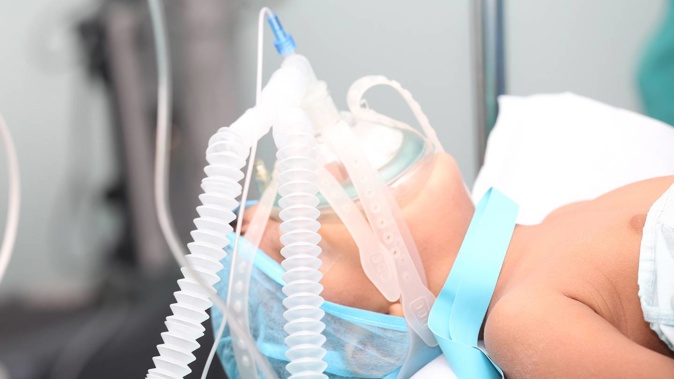

A newborn baby boy was left with brain injuries when his heart stopped beating after staff at a maternity hospital failed to identify signs of dangerously low blood-sugar levels.
The Health and Disability Commissioner today criticised the care given to the baby at Birthcare Auckland in March 2019, while the boy’s family have hit out at the way the hospital handled the subsequent investigation.
“What makes this incident an even more difficult pill to swallow is the way Birthcare has dealt with the situation,” the baby’s parents told the commissioner.
“Birthcare’s repeated failure for open disclosure and engagement with us has caused a large rippling effect in the way [Baby A’s] case has transpired … This has caused us significant harm and an additional level of distress as a family.”
All of the names of the family and staff involved in the baby’s care have been redacted in the finding, released today.
The baby was delivered without incident after a normal pregnancy and labour. But, during the next 24 to 48 hours his health slowly declined due to hypoglycaemia - low levels of sugar in the blood - which there was a delay in identifying.
This caused the baby to collapse during an ambulance transfer to the neonatal intensive care unit and have a seizure. His heart stopped beating and he needed to be resuscitated.
Hospital staff concluded the baby had suffered extensive brain damage and was not expected to survive. However, he did survive, albeit with cerebral palsy and significant developmental delays. The family are unclear about how their child’s brain injuries will affect his future development.
The commissioner found there were multiple “missed opportunities” to intervene in the baby’s care, including by one of the midwives on shift.
That midwife said her ability to care for the baby was affected by her competing obligations with other patients.
The commissioner found the midwife failed to carry out the appropriate tests when the baby’s temperature was recorded as 36.2C, didn’t undertake a critical assessment of the baby’s possible seizure activity or a pulse oximetry when she saw the baby’s skin colour was bluish.
The midwife - referred to as RM B in the decision - also failed to take baseline vitals before the baby was transferred to intensive care, didn’t administer oxygen while in transit when the baby’s vitals seemed abnormal and didn’t follow basic life support protocols in the emergency situation that developed.
“I consider that, particularly when viewed together, RM B’s failures in her care of Baby A demonstrate care that fell seriously below the appropriate standard,” said Deputy Health and Disability Commissioner Rose Wall.
Wall also found issues with the way Birthcare handled the situation, namely the inconsistencies in staff training for its neonatal hypoglycaemia policy.
“Some Birthcare staff demonstrated an alarmingly poor understanding of autonomous and accountable midwifery practice, and this led to Baby A receiving inadequate care,” she said.
“Birthcare’s own policy identifies that hypoglycaemia is the most common metabolic problem in newborn infants.
“I agree that the management of hypoglycaemia should be a basic skill for all Birthcare staff. Yet, for Baby A, no one at Birthcare administered him dextrose gel even after two RBG tests showed that he was hypoglycaemic. This is a fundamental failure to deliver services to a vulnerable infant with care and skill.”
Wall said Birthcare had a lot of work to do to restore public confidence in it. It also referred both Birthcare and the midwife to the director of proceedings to assess whether further legal action would be taken against them.
The baby’s parents said he would never be the same again.
“We feel that this tragic, preventable event has robbed him of his basic rights and joys of being a little human being — being able to walk, jump, run independently and explore the world, to be able to sing for fun, to talk and express his needs and wants, be able to have a sense of self-determination and independence, and most of all achieve his true potential in life,” they wrote.
“We have been unnecessarily thrown into a lifelong situation where we feel powerless and out of control in ALL aspects of our lives.”
The primary midwife at the centre of the incident said her care of the baby needed to be looked at in the context that there were multiple missed opportunities for other health practitioners to intervene in the baby’s care.
She maintained she was proactive in addressing any concerns about the baby as they arose.
Birthcare said its ownership had changed since the incident, and it was confident this would not happen again.

Take your Radio, Podcasts and Music with you









